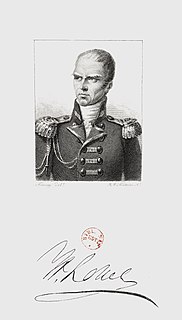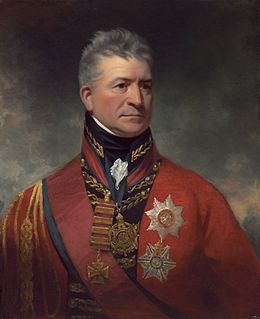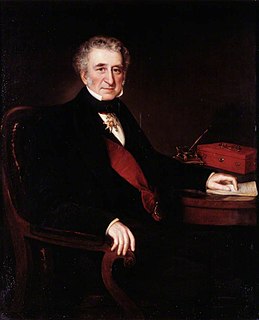 W
WMatthew Whitworth-Aylmer, 5th Baron Aylmer, was a British military officer and colonial administrator.
 W
WGeneral Henry William Breton was a British Army officer who became General Officer Commanding South-West District.
 W
WBoyle Travers Finniss was the first Premier of South Australia, serving from 24 October 1856 to 20 August 1857.
 W
WField Marshal Sir Samuel Hulse, GCH was a British Army officer. He saw his first active duty during the Gordon Riots in June 1780 before commanding the 1st Battalion of the 1st Regiment of Foot Guards at key battles of the Flanders Campaign during the French Revolutionary Wars. He also commanded the 1st Guards Brigade at a later battle and then joined the retreat into Germany during the closing stages of the Flanders Campaign. He later took part in the Anglo-Russian invasion of Holland and then returned to England to become General Officer Commanding South East District. After completing active service in the Army, he served in the household of King George IV.
 W
WLieutenant General Sir Henry Sheehy Keating KCB was born at Bansha, County Tipperary in Ireland and was an officer of the British Army during the French Revolutionary and Napoleonic Wars who served in two important operations against French colonies. The most important of his services came during the Mauritius campaign, when he commanded the troops stationed on Rodrigues, a small island used as a base by British forces during the campaign. Keating was instrumental in planning and executing a series of amphibious operations against the French held islands, culminating in the capture of both Île Bonaparte and Île de France in 1810, as part of the Mauritius campaign of 1809–11.
 W
WSir Hudson Lowe was an Anglo-Irish soldier and colonial administrator who is best known for his time as Governor of St Helena, where he was the "gaoler" of the Emperor Napoléon.
 W
WLieutenant-General Sir Thomas Picton was a Welsh officer of the British Army who fought in the Napoleonic Wars. According to the historian Alessandro Barbero, Picton was "respected for his courage and feared for his irascible temperament". The Duke of Wellington called him "a rough foul-mouthed devil as ever lived", but found him capable.
 W
WSir Thomas Simson Pratt, KCB was a British Army general. He served in the First Anglo-Chinese War (1839–1841), in India from 1843 to 1855 where he was deputy adjutant-general at Madras, and was commander of the British Forces in Australia from 1856 to 1861. He was promoted to lieutenant-general on 31 May 1865, and to full general eight years later.
 W
WMajor-General Theodore Edward Stephenson CB (1856–1928) was a British Army officer who commanded 2nd Division.
 W
WMajor-General James Stuart was a British Army officer who served in various conflicts in India during the 18th century. His service in the East India Company was marked by his conflict with Lord Pigot, the governor of Madras; Stuart's arrest of the latter in 1776 resulted in his suspension as commander-in-chief, and he was not vindicated until 1780. He later fought in the Second Anglo-Mysore War, but was suspended from command in 1782 by Lord Macartney, an action that provoked a duel between the two men. Stuart was a younger brother of the lawyer and politician Andrew Stuart.
 W
WLieutenant-Colonel Patrick Duff Tytler FRSE (1760–1849) was an 18th-century Scottish soldier who oversaw Stirling Castle.
 W
WLieutenant-Colonel Sir Alfred Cholmeley Earle Welby was a Conservative Party politician who served as the Member of Parliament (MP) for Taunton from 1895 until 1906. He had previously served in the British Army, rising to the rank of lieutenant-colonel in 1892. He stood unsuccessfully for the Conservatives in 1885, 1886 and 1892 prior to gaining his seat in Taunton. In 1906 he opted not to stand again in Taunton, but to contest the seat in East Finsbury, but was defeated. He was a London County Councillor from 1907 to 1910, and during the First World War, he was secretary of the Royal Patriotic Fund Corporation.
 W
WJohn Fane, 11th Earl of Westmorland, styled Lord Burghersh until 1841, was a British soldier, politician, diplomat, composer and musician.